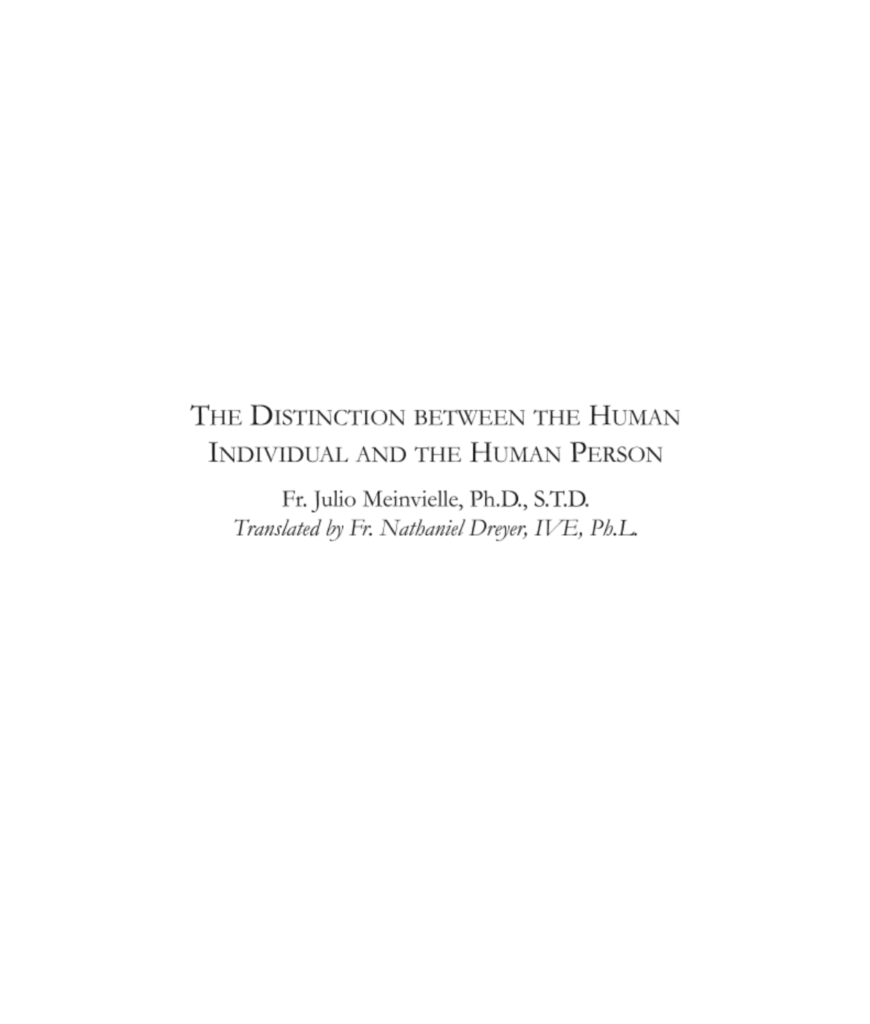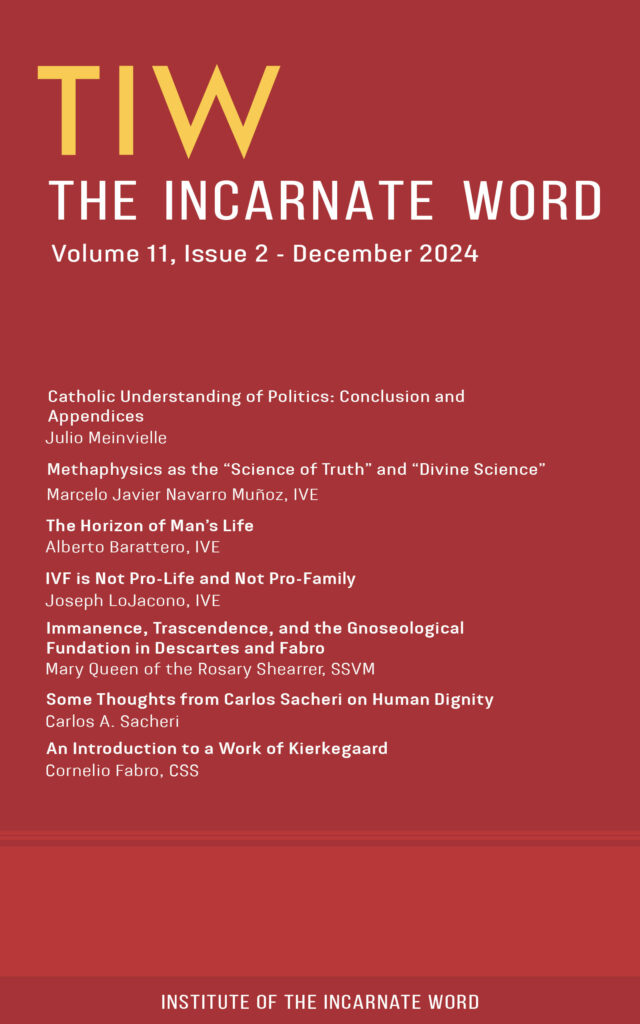Translator’s Preface What follows is a translation of the first chapter of Julio Meinvielle’s book, Critica de la concepción de Maritain sobre la persona humana (Buenos Aires: Ediciones Nuestro Tiempo, 1948) * ; the subsequent chapters will be published successively in The Incarnate Word. In order to supplement the author’s work and to provide context, two appendices have been added, namely, the entries “person” and “personality” from the Enciclopedia Cattolica. Both entries were written by Cornelio Fabro, a close friend and collaborator of Meinvielle’s. These appendices have been translated from the Italian. This text uses two sets of footnotes. The first set, designated with Arabic numerals, are the author’s original notes; the only changes introduced in this set were to standardize names and references and to replace texts quoted in a language other than Spanish with an English translation. Occasionally a reference has been changed to “cf.” when the text does not match the latin original. The second set, indicated with letters, includes the texts as quoted by the author in their original language, the citations for the translations utilized, and comments regarding the author’s original text.
IT WOUlD NOT BE USELESS TO STATE, as a first warning, that here the fact that the human person must be given dignity is not under discussion. It’s enough to remember that, first of all, the human person carries within himself the dignity that all things have, since, no matter how minimal said thing is, it manifests “the infinite power and the infinite knowledge and goodness of God.”1 Moreover, the human person also has the dignity of spiritual creatures, made in God’s image, certainly not because of the body but rather “that by which man excels all animals: his reason and intelligence.”2 This is the dignity of the image of God, of creation, of re-creation, and of similitude: of creation, “inasmuch as man possesses a natural aptitude for understanding and loving God; and this aptitude consists in the very nature of the mind, which is common to all men,” of re-creation, “inasmuch as man actually and habitually knows and loves God, though imperfectly; and this image consists in the conformity of grace,” and of similitude, “inasmuch as man knows and loves God perfectly; and this image consists in the likeness of glory.”3a Even theologians point out with Saint Thomas that this dignity of the triple image of God can be ontological, or of the soul’s essence, inasmuch as it represents the divine essence according to the things proper to the intellectual nature, 4 or psychological or operative, which consists in acting in a way similar to God, who acts with His own and quasi-specific operation. 5
There’s no doubt that the human person has an eminent ontological and operative dignity, a dignity that Saint Thomas formulates in this strong phrase: Person signifies what is most perfect in all nature. b Chapters 111, 112, and 113 from Book Three of the Summa Contra Gentiles are also well-known; in these, the Angelic Doctor considers the special way in which rational creatures are governed by Divine Providence. “For they surpass other creatures, both in the perfection of their nature and in the excellence of their end: in the perfection of their nature, because the rational creature alone has dominion over its action, since it moves itself freely to act. . . . [and] in the excellence of their end, because the intellectual creature alone by its own operation attains to the last end of the universe, namely, by knowing and loving God.”6c “Therefore the intellectual nature alone is requisite its own sake, and all others are for its sake.”7d Therefore, only the rational creature is directed in his acts by God, individually as well as specifically. “Therefore the acts of a rational creature are directed by divine providence, not only in so far as they belong to the species, but also inasmuch as they are personal.”8e
TO VIEW FULL ARTICLE SUBSCRIBE TO PDCNET




